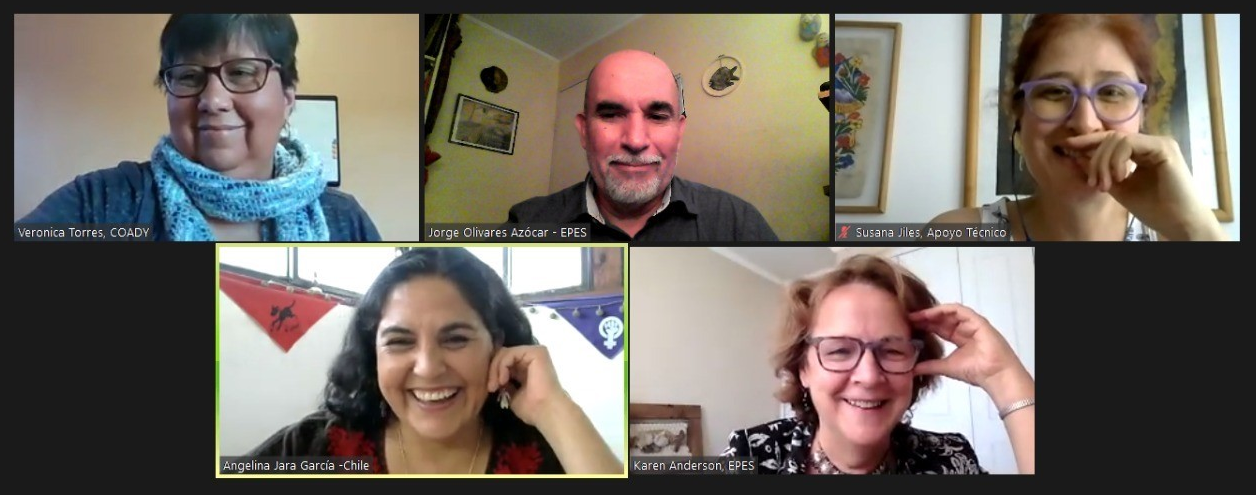Written by Isabel Díaz Medina
A partnership between Coady Institute and the Santiago, Chile-based Educación Popular en Salud (EPES) Foundation has strengthened Latin American women’s networks through the course Women’s Leadership, Participation and Community Works, held November 8 to 26.
Participants from grassroots organizations in Colombia, Chile, El Salvador, Mexico, Peru, Guatemala, Dominican Republic, Venezuela, and Haiti came together virtually for the course’s second version, consolidating north-south bonds between the two coordinating institutions.
EPES educator and course coordinator Angelina Jara García said the course “arose from the belief in the important role women play in the transformation of their communities. Women are on the front line of defense of the dignity of our people, as was shown during the pandemic.”
Angelina added that “…together and as part of a network we have the capability to build societies based on social justice, in this region so dominated by inequity and violence that violates our rights.”
Women are on the front line of defense of the dignity of our people, as was shown during the pandemic … together and as part of a network we have the capability to build societies based on social justice, in this region so dominated by inequity and violence that violates our rights.
Coady teaching staff member Veronica Torres emphasized the course’s importance for “enabling dialogue concerning tools, concepts, and practices in feminist leadership.”
She assured participants that the communications and self-help techniques they acquired through the course “will strengthen women’s struggles for and with other women in their communities.”
As EPES Executive Secretary Sonia Covarrubias pointed out, the Latin American women’s movement has some familiarity with popular education as a tool for generating collective transformational processes.
Veronica and Angelina, as well as Coady’s Director of International Centre for Women’s Leadership Eileen Alma helped the women identify different leadership models that apply to their contexts, while also mapping their own talents, skills, needs, and dreams to validate their understanding of what leadership means.
Eileen also invited the participants to explore the true meaning of self-care and collective caring, recapping with feminist writer Audre Lorde’s (1988) affirmation, “Caring for myself is not an self-indulgence; it is preservation, and that is an act of political warfare.”

Olga Montufar, a social policy expert of Mexico, said her learning from others’ experiences enabled her to perceive the weaknesses as well as the strengths of her organization, the Indigenous Disabled Women Movement.
“As disabled indigenous people we have harnessed our own life experiences to highlight vulnerability and lack of rights,” Olga said.
Through the course she rediscovered the steps that must be followed to ensure the success of popular education.
Nidia López, a Guatemalan clinical psychologist, said the course equipped her with “useful, dynamic tools and valuable lessons that gave me ideas and methods for conducting my own workshops and training sessions using popular education.”
The most important lesson Patricia Pinto, of Chile, learned was “the transversal character of gender inequality in different countries and cultures, and how much remains to be done to create a policy capable of generating real and deep changes.”
Sonia says the Coady-EPES partnership shed new light on popular education by posing innovative ways to approach and convene women, while also incorporating a broader range of health-related issues, such as the environment and self-care.
This article was contributed by Isabel Díaz Medina of Educación Popular en Salud (EPES) and translated by Maxine Lowy. The original version can be found HERE.